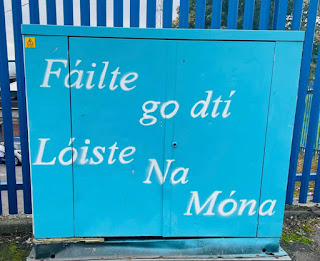Peace Talks Now
The scale of the assault by Palestinian fighters into Israel last weekend is unparalleled. The scenes of death and destruction on both sides are heart breaking. But shock and despair at more violence in that region is not the answer.
The roots of these events are to be found in the failure of the international community to take decisive steps to defend international law, challenge Israeli aggression and its continued illegal occupation of Palestinian land, and to recognise the rights of the Palestinian people.
Over the last year there have been increased killings of Palestinians, particularly children, by the Israeli Defence Forces and by Israeli settlers. At the same time the theft of Palestinian land, the existence of the Separation Wall, the growth in Israeli settlements and the destruction of Palestinian schools, homes, sources of water and the imprisonment of thousands of prisoners, have largely been ignored by the international community.
History teaches us that when colonisers engage in wholesale military, political and economic repression and ignore the democratic rights of citizens, this is likely to lead to conflict. This is not new. It is story of colonialism in countless states across the world, including here in Ireland.
I warned of this potential in April 2009 following a visit to the region. During my time in the west Bank, in Jerusalem and the Gaza Strip I met a huge number of NGOs, Israeli and Palestinian human rights organisations, women’s groups, community organisations, a member of Kadima, and all of the main Palestinian political parties.
In a subsequent report of the visit I wrote that decades “after the emergence of the Israeli state and the partition of Palestine, and with the increasing sophistication of the weapons of war on all sides, it is clear that no wall – however high – can provide permanent peace or security.”
I added: “Refusing to engage in dialogue; demonising opponents; treating them as non-citizens; stripping them of their rights and entitlements, of their self esteem and integrity as human beings; engaging in censorship and vilification, makes war easier and peace harder. It is a policy which guarantees a perpetuation of the cycle of conflict.”
The alternative then and today is obvious. Dialogue. Negotiations. More dialogue.
So, after the weekend’s event what should happen next? In 2009 I proposed that:
· All armed actions or threats of armed actions should cease immediately.
· An inclusive process of negotiations should commence in which all democratic mandates are respected, clear objectives are set, and there is a fixed timeframe.
· The siege of the Gaza Strip should end.
· An immediate and intensive programme of reconstruction and economic development must commence.
· The ongoing Israeli colonisation of the West Bank and the building of settlements should stop.
· The occupation of the West Bank and the denial of freedom of movement to Palestinians in the West Bank and in the Gaza Strip, and between the west Bank and Gaza, should end as part of the process to decolonise the West Bank.
· Mutual and expeditious co-operation between Palestinians and Israelis to enhance public safety and security should commence.
· United Nations Resolutions and International Law should be enforced.
These steps are even more necessary today. 75 years after the state of Israel was established and millions of Palestinians were forced from their homes to become refugees the imperative of achieving a political settlement is more urgent that ever.
However difficult it will be this is the time for dialogue. The demand of the international community must be for an end to all violence. All those who are decrying last weekends terrible events in the Middle East should organise a international intervention to establish a proper negotiations process, based upon international law. Anything else is unacceptable. The Irish government could and should play a leadership role in such an initiative. Dialogue, dialogue is what is required. As soon as possible. That means NOW!
The alternative is too terrible to contemplate.
On Being Seventy Five.
I published a version of this reflection when I was seventy two.Following my recent 75th birthday I think it deserves another slightly revised outing. I might rewrite and republish it again when I’m eighty. Who knows?
I celebrated my seventy fifth birthday last week.
Seventy five is closer to eighty
Than it is to sixty. Or fifty. Or forty. Or thirty. Or twenty.
But I know that
I will never be sixty. Or fifty. Or forty. Or thirty. Or twenty.
Ever again.
Sin é.
That’s the way of it.
That’s life.
But will I ever be eighty? Nobody knows. That’s the mystery of it.
The wonder of it. The adventure of it. And the hope.
Me?
I hope to know my grandchildren’s grandchildren.
But not too soon a thaiscí
That’s impossible say the naysayers.
Nothing is impossible I reply.
Content that
We will find out in the end.
Well, some of us will.
Until then I will try to live every day
Like it is my last day.
And eventually I will be right.
But from now until then
I am sure
The best is yet to come.
Gort Na Mona are leading the way in the Upper Springfield with their brightly coloured electric boxes.

.jpg)




Comments